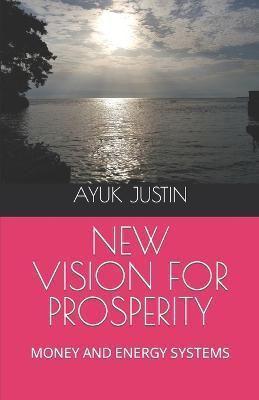Publisher's Synopsis
NEW VISSION FOR PROSPERITY
New Vision for Prosperity aims at igniting dreams and endorses behavioural changes capable of fostering social change irrespective of the community we find ourselves in. In thirteen chapters the author depicts poverty as a reversible mindset construct based on the choices made, and the activities we pursue. The individual's perception of himself, his relationship or attachment to and knowledge of his community, and the development of certain human qualities remain primordial determinants to any financially successful story.
Beyond these, this work attempts to relate different homogenous groups with money, the time value of money, money creation and growth, meaning of wealth sustenance and purpose of social change. It proposes a win-win mechanism for both individual and collective prosperity.
To begin with, the first chapter examines a picture of the typical person and knowledge of their community, how they see and make conclusions of what goes on around them, their awareness of the necessity to be part of their environment, and the impact of the community on them. It goes further to examine how their judgement builds imaginations about their future and how they position themselves in relation to those they associate with.
Next, religion and faith are examined with respect to financial and economic well-being. The love for money, work and success, as enshrined in the Holy Book and the actions of the religious faithful towards community members are put face to face with the prescription to "love your neighbour as yourself." Definitely, the grip of men of God on congregants and their search for solutions to life's challenges remain a hindrance to economic progress and raises questions as to what the rationale for creation is.
Furthermore, the author questions the relevance of the educational approach adopted by many developing countries, and demonstrates that literacy-based development may not have provided a clear answer to the purpose of creation. Thus,
some educational systems have kept many away from specific elements of social change and development, and consequently smokescreen them from society's real structure and modus operandi.
This work suggest that, we ought to belong to our environment and interact with it as a financial or economic ecosystem rather than just be a product of it. Committing to a purpose is a prerequisite to connecting to financial ecosystems, and is catalytic in unleashing inherent potentials critical in fuelling these energy systems.
This work persuades the reader to develop the capacity to reduce communities into systems, identify missing elements, to propose an auto energy enhancing mechanism in the service of humanity, and consequently unlocking rewards commensurately to energy build-up.
New Vision for Prosperity attempts to relate money value to services through community derived utility, and highlights that no environment is barren. It exposes the challenge to finding an optimum combination and the unleashing procedure within a given community. This brings in the concept of time and the value of money, and necessity to be financially self-reliant. It imposes knowledge of: money as a tool in community interconnectedness; money making as a game in social reformation; money growth as a process that passes through arithmetic, geometric, and then, exponential stages.
Lastly, it proposes a mechanism which individuals and groups within communities can use as a leverage to alleviate poverty and impose social change. It puts forward a P2P win-win mechanism where crowd funding can easily be employed for collective financial prosperity in both homogeneous and heterogenous groups.









